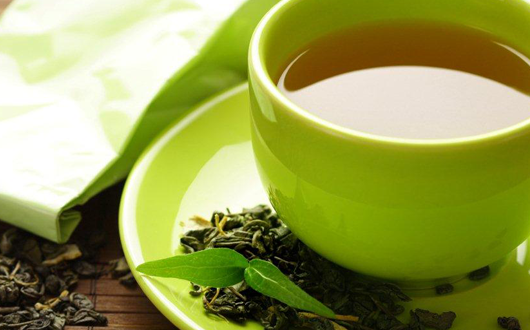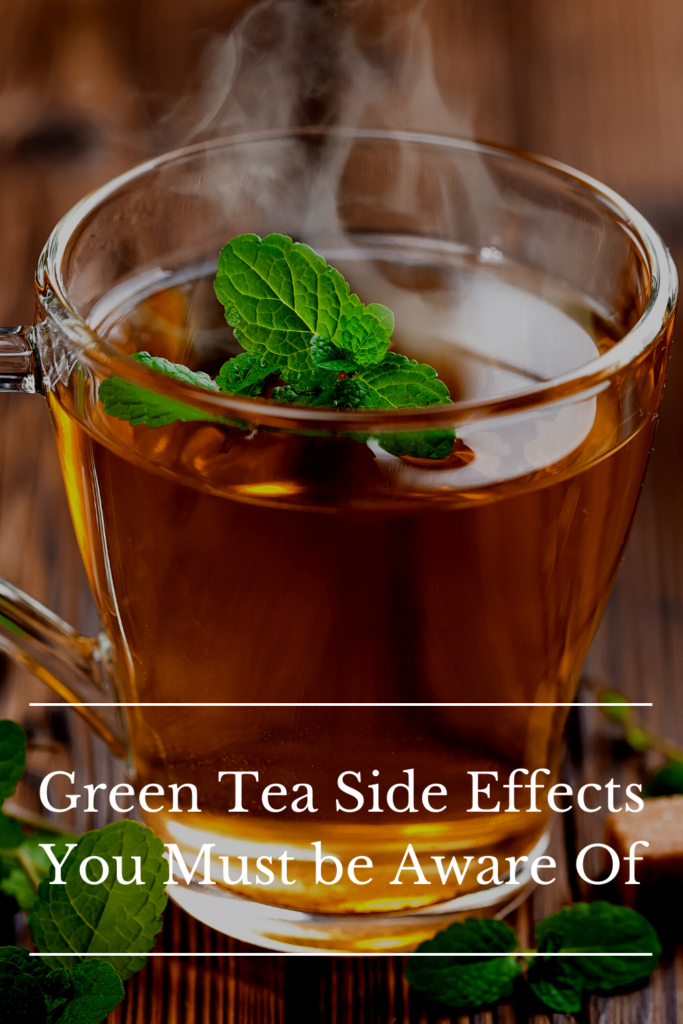
We all know Green Tea for its amazing health benefits, but did it ever cross your mind that this nature’s marvel could have some side effects too? Yes, that’s right.
The healthiest beverage on the planet is packed with anti-oxidants and nutrients and is becoming a rage among health and weight watchers. It is all natural, has been used for ages, and has hundreds of health benefits but it too has some downsides that one needs to be aware of.
Don’t stress, green tea side effects are rare and the benefits undoubtedly outweigh its negative effects. If you drink it in moderation and keep some rules in mind, you are safe, and regular drinking will only improve your health.
1. Caffeine Intolerance
Green Tea contains caffeine but in lower amounts than in black tea or coffee. Excessive intake of green tea (more than 5 cups), can cause caffeine intolerance and mineral overdose.
The most common symptoms of caffeine intolerance are headache, nervousness, sleeping disorder, nausea, uneasiness, abnormal heartbeat, jitters and convulsions. Individuals who are sensitive to caffeine are more susceptible and ingesting even a small amount may cause the above symptoms.
2. Medical Interactions
Caffeine is also known to interact with certain medications taken for the treatment of heart conditions, diabetes, blood pressure and epilepsy. Caffeine affects the way the body uses sugar, so be warned if you have diabetes and are drinking too much green tea.
Also excess caffeine might increase the amount of calcium that is flushed out with urine, affecting your bone health adversely and increasing the risk for osteoporosis. Consult your doctor if you are in doubt or are taking any medications before starting a daily green tea regimen.
Related: Best Matcha Tea Brands
3. Decreased Absorption of Iron
Green tea contains micronutrients called catechins which prevent cold and flu but also can reduce your dietary iron absorption.
Studies have shown that green tea extracts interfere with iron absorption and may reduce it by 25%. In contrast to this, a few other studies have shown long term tea consumption does not cause any harm as our body adapts to the catechins.
If you are prone to iron deficiency or anemia, the National Cancer Institute recommends limiting the number of cups of green tea you consume daily. Also, you should avoid drinking it with meals or within an hour after eating. If you like to drink green tea along with your meal, increase the intake of iron-rich foods and reduce foods that impair iron absorption.
4. Upset or Sensitive Stomach
Research has shown that green tea consumption during fasting can lead to chronic toxicity. Though the study was conducted only on animals, it is better to be safe than sorry and avoid drinking it on an empty stomach.
It is a common myth that green tea alone can compensate for deficiencies created by fasting. So it is recommended to drink it in-between or after meals rather than as a meal substitute during a fast.
5. Pregnant or Breastfeeding
Caffeine is considered mostly safe in limited quantities. However, excessive consumption, especially in early pregnancy, is not recommended as it increases the risk of miscarriage and other problems like sleeping disorders and irritability. If you are nursing, it is best to avoid caffeine as tends to pass into the breast milk.
Large quantities of green tea are also known to interfere with the absorption of folic acid, which is vital for the brain development of the fetus. Moderation is key, as a lack of folic acid can also lead to neural tube birth defects in newborns.
Enjoyed Green Tea Side Effects You Must be Aware Of? Share it with your friends so they too can follow the Superfoodsliving journey.
Share on Pinterest
